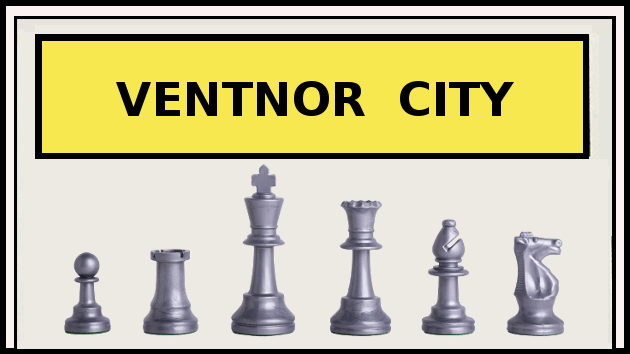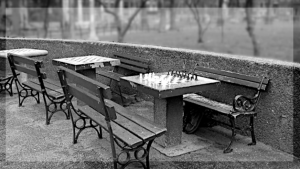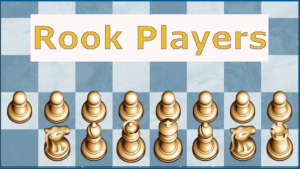
Advance to Ventnor III


1943


The 1943 tournament was held from July 5th - July 11

Anthony Santasiere and Pfc. George Shainswift shared the $50 first prize award. Santasiere, who espoused Romanticism, played defensively, only beating the Shainswit and Adams, drawing the rest of his games. Oon the other hand, Shainswit, who had a reputation as a "drawing master," played aggressively and would have taken the top prize alone had he not lost to Santasiere. Adams, who came in third seemed to have garnered the spotlight by not only winning the Brilliancy Prize (as well as ending up on the wrong end of the Best Played Game) but he abandoned his trademark Bishop's Gambit, which he played at every opportunity, for the Vienna Gambit.
The war affected chess at different levels. Ventnor City, in a financial pinch due to the war, had to withdraw it's support. Originally, the city announced their support would be for the duration of the war, but at the onset of this tournament, then mayor pledged to support future events. The city did donate the use of the pier auditorium, eliminating expenses so all the money gathered from private donors would go directly to the players. Besides the last minute $50 award for 1st place (split between Santasiere and Shainswit), The Brilliancy Prize and Best Played Game awards, selected by Reuben Fine, were donated by the Washington, D.C. Chess Divan. The rest of the money collected was distributed proportionately among the players according to points scored.


Martin Charles Stark, Jr. (1912-2011) was a Harvard educated engineer (1933) and a member of the Harvard chess team all four years. In 1935 he won the Washington D.C. championship. He was a frequent Capitol City Chess Club champion. He was also a tournament Bridge player.

Edward Schuyler Jackson (1897-1987) became the first winner of the U.S. Amateur Championship, held at the Manahattan Chess Club from Oct. 29 until Nov. 8, 1942. Jackson lost his Amateur title to Mengarini in 1943 but regained it at the Marshall Chess Club in Oct. 1944. Mengarini , serving in the military, was unable to defend his title. Towards the latter part of his life Schuyler suffered visual problems. He participated in the4th Blind Chess Olympiad in 1972, second board to Albert Sandrin.
The ending of this year was graced by the presence of I. S. Turover of Washington, who graciously entertained everyone at the luncheon.
We unhesitantly give full credit, however, to Richard W. Wayne, Tournament Director, for his untiring work in managing the tournament with its numerous details to that it runs so smoothly. Opertating with the handful of members comprising the Ventnor City Chess Club, his planning is so perfect and all marked with such genltemaness of character and fairness in his actions as to merit the respect and thanks of all. With it all Mr. Wayne is a keen chess player, eve tho handicapped by the lack of city competition, and we are happy to present.
- Isaac Ash, "Phila. Inquirer" Aug. 15, 1943
Best Played Game
Brilliancy Prize
.

1944


The 1944 tournament was held from July 1st - July 9th
Once again Jacob Levin upset the apple-cart a outplayed a strong field of contestants. But not everything was as it seemed. Lady Luck also made an appearance.
"Chess Review" had this to say:
The general quality of chess displayed at Ventnor this year was mediocre, to put it mildly. The masters who competed in the recent Speed Championship played better chess and made fewer blunders at ten seconds a move. Examples:
In his game with Jackson, Levin walked into a positionwhich permitted his opponent to mate or win the Queen ad a piece—but Jackson didn't see it!
Turover left his Queen en pris!
Shainswit agreed to a draw with Levin when he had an easy win!

Again in 1944 the players voted to divide the total prize package into 45 shares - one for each game played, with a full share awarded to a point and a half-share awarded to a half-point.
Contrary to the previous year, Santasiere played to win and Shainswit played to draw. Captain Joseph Rauch replaced Abe Yanofsky as the representative from Canada. Yanovsky had just enlisted in the Royal Canadian Navy on July 24 and was unable to attend.
Also in contrast to the previous year, Ventnor City provided some financial support as well as providing free accommodation for the players and their families.
Joseph Rauch won the Montreal Championship in 1940, '41, '42 and '47; In the Canadian Championship, e came in second behind Maurice Fox is both 1940 and 1949 and second behind Abe Yanofsky in 1937. Rauch won the "A" division of the A.F.C. tournament in Boston in 1938 and won the Canadian Open in both 1949 and 1951.
Attilio Di Camillo was a Philadelphia master credited with teaching Saul Wachs, Charles Kalme and Lisa Lane. We had been the Pennsylvania State Champion in 1946, 1947, 1960, 1961. Suffering from poor health his entire short life, DiCam, who was born in 1917, died from pneumonia at age 44 in February of 1962.
Isador Samuel Turover (1892-1978) was a many-time Washington D.C. champion and an adept chess problem-solver. Wealthy from a lumber/millwork company he founded, he spread his wealth generously to chess players, sponsoring tournaments and donating prizes. He had also been a one-time director of the American Chess Foundation.


from the "Philadephia Inquirer"

One of the most movng events of the Ventnor City Tournament was the special award given by Richard W. Waybe in memory of is nephew, Michael Wayne, Captain of the 31st Royal Lancers, whose death in action was recently reported. As "Dick Wayne" so well put it he could give no better tribute to a fighting heart than to give a special award to the chess player in the tournament who had shown that he had a fighting heart throughout the contest. The award was given to Jacob Levin, whose courage and fighting ability carried him through to victory. The laudable spirit on Wayne's part and his touching words brought tears to the eyes of the spectators and players who felt honored that such a comparative tribute be made to a fighting hero and chess.
Ash gave the following game as an example of Levin's fighting spirit (ironically, it is also the game referred to by "Chess Review" as being lost by Levin but with Jackson missing the forced line):
 Martin Stark (L) vs. Anthony Santasiere (R)
Martin Stark (L) vs. Anthony Santasiere (R)
Santasiere employs his "Futuristic Chess Opening"



The result was never posted.


1945



Weaver Adams won the 7th and final Ventnor City Invitational.
The youngest participant was Robert Byrne, then a 17 year old New York high school student. Close to his age was Abe Yanofsky's brother18 year old brother, Harry, from Winnipeg Canada. Harry made a rather poor showing while Byrne made a more credible one, being the only player to beat the winner, Adams.
Fred Reinfeld wrote in the notes to this game between two originals, "I generally disagree with Adam's theories, but I alsways enjoy his games.
It's well known that Santasiere loved gambits and the King's Gambit is the mother of all gambits. But Horowitz, in his notes, informs us that the King's Gambit was a favorite of young Robert Byrne and even remarks that for such a KG specialist, his defense was rather questionable. Horowitz added, "Evidently, Byrne specializes with the White men only."

The names of Bernard Keltz and Adolph Regan, both from Philadelphia, are clouded in mystery. Reinfeld called this Keltz's first important tournament. It seems there was a shortage of players and these two club players from nearby Philadelphia were enlisted. Still Keltz was able so secure 3rd-4th place and Regan, %th-6th-7th.

Matthew Green attended Seward Park High School in New York where he captained the chess team. He won the New Jersey state championship in 1962. One curious anecdote concerning Green reveals he participated in the 1940 Marshall Chess Club Championship. Green beat Reuben Fine in their individual game, a QGD. In his notes to the game, Green said, "A victory over a grandmaster is not conducive to modesty - I hope this explanation excuses the personal nature o the comments!" (Fine won the tournament; Green came in 8th out of 17).



Schuyler vs. Regan:


. . . and beyond


"Chess Review" July, 1947
The Invitational ended in 1945. In 1947 the New Jersey State Chess Federation sponsored an open tournament in it's place.




